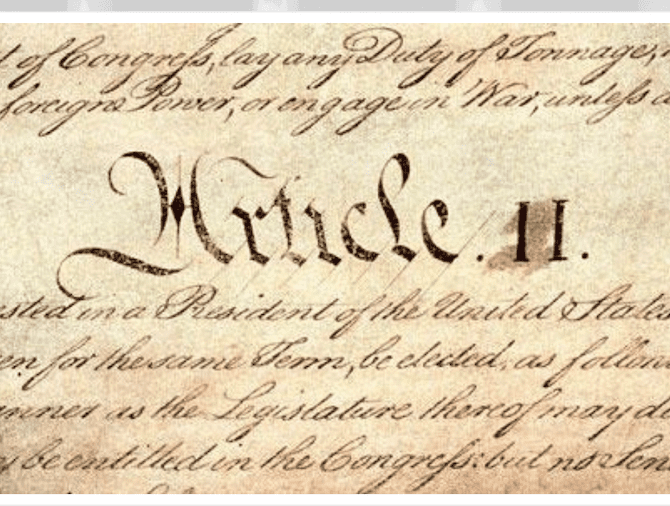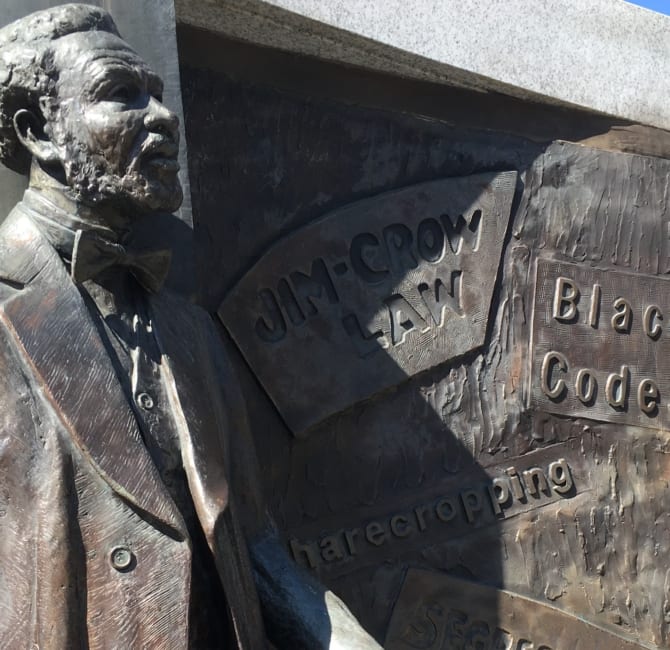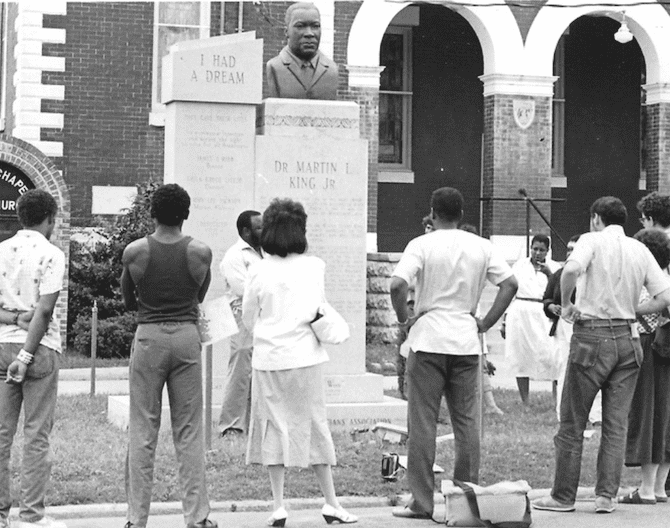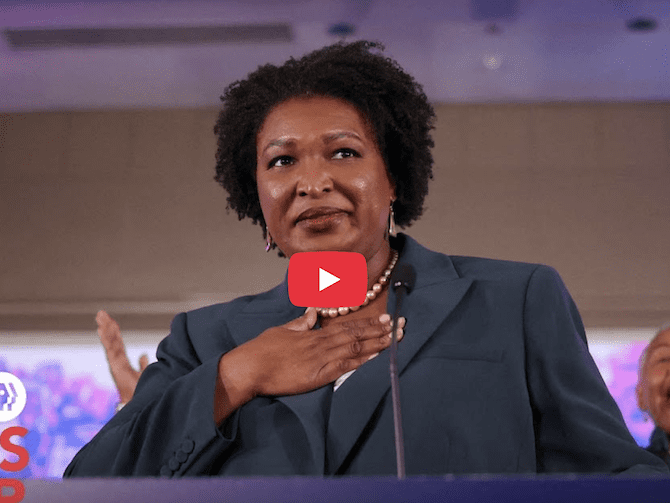Trump Team Turns to Disinformation as GOP Keeps Losing Voting Rights Suits

(Image: Facebook screenshot via Talking Points Memo.)
Democrats and voting rights advocates keep winning swing state lawsuits extending the deadlines when absentee ballots that are postmarked by Election Day can arrive by mail and be counted. But as Republicans appeal those extensions, President Trump and his family are ramping up disinformation about absentee ballots and counting votes after Election Day.
The President’s son, Donald Trump, Jr., said in a Facebook campaign video on Tuesday that Democrats “are planting stories that President Trump will have a landslide lead on election night but will lose when they finish counting the mail-in ballots… Their plan is to add millions of fraudulent ballots that can cancel your vote and overturn the election.”
Trump’s assertion is a lie. Ballots get counted in batches: early voting, first-arriving absentee ballots, Election Day precinct ballots, other ballots delivered by mail (including soldiers and civilians overseas) and provisional ballots. There is no truth to the claim that millions of mail ballots are fraudulent. But there is a larger context to these attacks.
The Trump re-election campaign, represented by the Republican National Committee (RNC), state Republican Parties and Republican-majority legislatures, keep losing voting rights lawsuits filed by Democrats and voting rights groups seeking to protect various constituencies.
On Tuesday, September 22, North Carolina’s State Board of Elections announced a settlement in a suit brought by advocates of elderly voters that will make it easier to fix problems with how some voters mistakenly fill out and sign their absentee ballot envelopes. The settlement also extended the post-Election Day deadline for the Post Office to deliver those ballots by three days. (North Carolina Republicans criticized the deal and said they might sue to block it.)
On Monday, September 21, a U.S. District Court in Wisconsin ruled against the Wisconsin Republican Party, RNC and GOP-led legislature in a decision that gives the Post Office three more days to deliver ballots that had been postmarked by November 3, Election Day.
These decisions followed a Michigan state court ruling that extended the ballot return deadline to November 17. (Michigan’s GOP-led legislature “is working to appeal” that ruling, the Detroit News said.) That same day in Pennsylvania, its state Supreme Court issued a ruling that extended the deadline to November 6 and allowed Pennsylvania counties to use drop boxes to collect absentee ballots.
On Tuesday, Pennsylvania’s Republican legislative leadership filed a motion with its Supreme Court to postpone the order until the U.S. Supreme Court can review the case. On Monday, the RNC and Georgia Republican Party filed a federal court motion to overturn a three-day extension for absentee ballot delivery to November 6.
The big picture here is that state and federal courts have been siding with protecting the rights of voters to cast mailed-out ballots in a pandemic. The rulings are making allowances for postal return of the mailed-out ballots, where thousands of ballots will be postmarked on or before November 3, Election Day, but may take several days to arrive at local election offices.
On the eve of Wisconsin’s April 7 primary, when the pandemic’s first wave was cresting, the U.S. Supreme Court ruled that the state’s absentee ballots could take up to a week to arrive after the primary. That decision, only for that election, allowed an additional 79,054 ballots, 6.68 percent of the total vote, to be counted, according to the Wisconsin Elections Commission. Trump won the state in 2016 by 22,748 votes.
Both parties realize how high the stakes are for the 2020 election, especially if the vote count margins are very close. Of all of these voting rights battles, the one that is most closely watched by legal scholars is the state Supreme Court case in Pennsylvania. There, the GOP is hoping that the U.S. Supreme Court will intervene and side with Pennsylvania’s Republican majority legislature that did not pass the ballot-return extension as a law.
At the heart of that case is whether the U.S. Supreme Court can tell a state supreme court how to interpret state election laws—even if those laws clash with that state’s constitution. Pennsylvania’s Constitution has very strong voting rights protections. The Pennsylvania Supreme Court’s ruling rejected the legislature’s failure to act on voters’ behalf. Republicans are arguing that ruling violated the U.S. Constitution’s Election Clause by “seizing control of the times, places and manner of federal elections.”
As these details play out in the constitutional law arena, the Trump campaign has decided to ramp up anti-Democratic conspiracies and anti-voting disinformation.
“The President’s Son Baselessly Suggests That Election Officials Will ‘add millions of fraudulent ballots that can cancel your vote and overturn the election,’” tweeted Rick Hasen, University of California Irvine law professor and curator of ElectionLawBlog.org. “So, so dangerous.”
“This crap from Don Jr. makes me think even more Biden should declare victory as soon as the first results are reported on election night, which in many states will be the mail ballots and in-person early votes counted during the day,” tweeted Michael McDonald, University of Florida political scientist ,and curator of the most up-to-date national data on 2020 absentee voting.
The past few days have also been filled with warnings about a flood of new and coming disinformation. But none were more striking than a “public service announcement” on Tuesday, September 22, from the FBI and CISA—the federal Cybersecurity and Infrastructure Security Agency, entitled, “Foreign Actors and Cybercriminals Likely to Spread Disinformation Regarding 2020 Election Results.” It said:
“Foreign actors and cybercriminals could create new websites, change existing websites, and create or share corresponding social media content to spread false information in an attempt to discredit the electoral process and undermine confidence in U.S. democratic institutions.
“State and local officials typically require several days to weeks to certify elections’ final results in order to ensure every legally cast vote is accurately counted. The increased use of mail-in ballots due to COVID-19 protocols could leave officials with incomplete results on election night. Foreign actors and cybercriminals could exploit the time required to certify and announce elections’ results by disseminating disinformation that includes reports of voter suppression, cyberattacks targeting election infrastructure, voter or ballot fraud, and other problems intended to convince the public of the elections’ illegitimacy.”
Perhaps it is more than ironic that the Trump administration’s security team is warning about foreign threats but could also be referring to propaganda from Trump’s campaign. While it is easy to fall into the disinformation vortex, the 2020 election will still be run by local officials who follow laws, rules and procedures that control how votes are counted.
So far, the RNC has lost more than won in court. But they hope that the U.S. Supreme Court will nullify efforts to count absentee ballots that are postmarked by Election Day but arrive a few days later. Whether the RNC gets the Supreme Court to intervene and do its bidding could be an October surprise.
Also available on: AlterNet.






